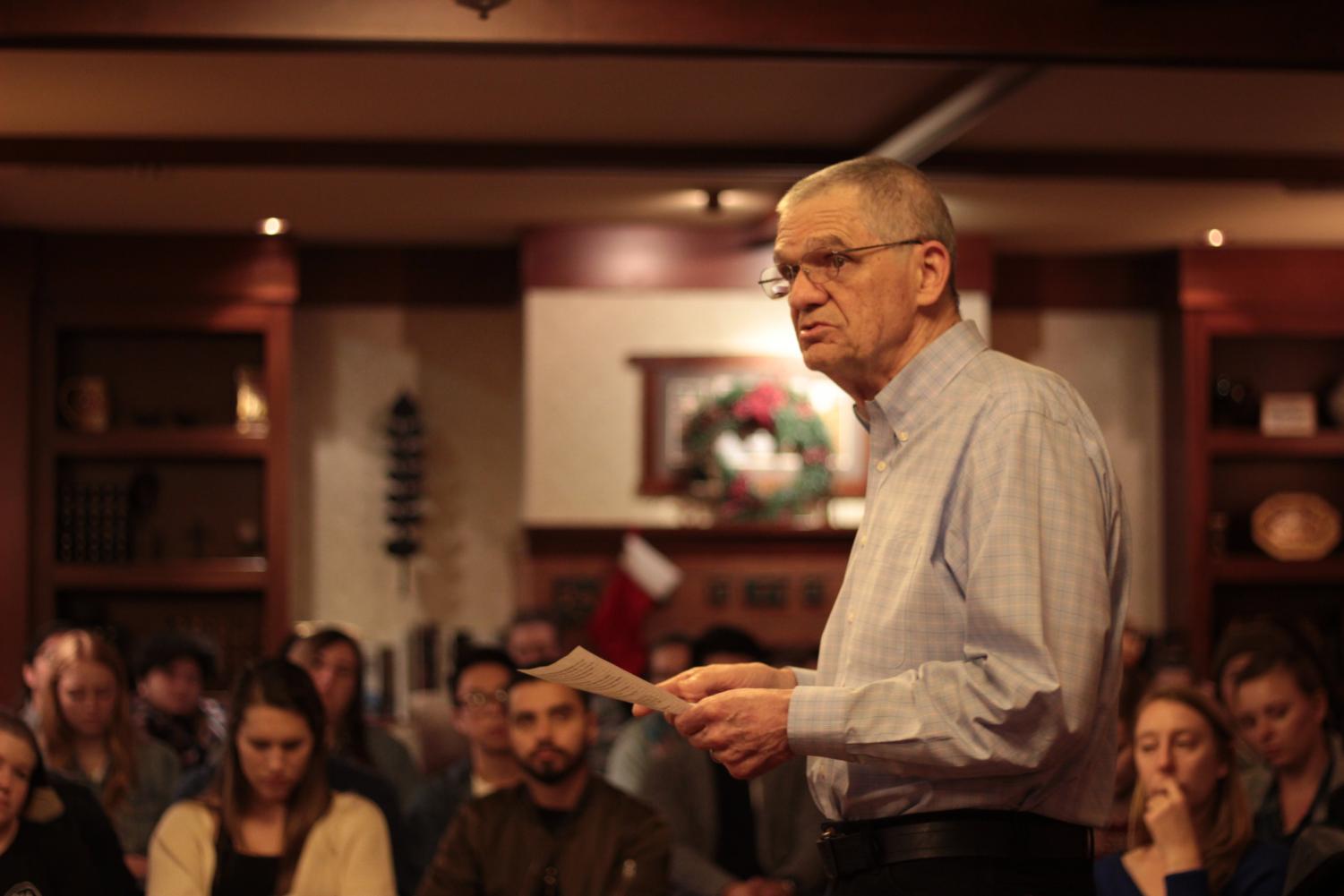A group of communication studies students hosted a discussion on the gender role debate that featured the viewpoints of two faculty members. Their event, “A Call to Unity: Egalitarian and Complementarian Views,” created a space for respectful dialogue between each side of the gender debate spectrum. The dialogue featured professors of Old Testament David Talley and Ronald Pierce as they discussed their views on the gender debate with an audience of students in the Collegium on Monday night.
AN OVERVIEW OF POSITIONS
The first half of the night began with both Talley and Pierce each giving an overview of their views, Talley as a complementarian and Pierce as an egalitarian. Talley explained his complementarian view that men should take leadership and headship in marriage and in the church, while still emphasizing the importance of the distinctive roles of each gender.
“There’s a sense in which together [people] are to live out their distinctive characteristics of what it means to be male and female, but for the purposes of actually doing God’s work in this world. There’s a togetherness in that,” Talley said in his overview.
Pierce explained his egalitarian position of mutuality between genders in marriage, the church and beyond, and what he believes it looks like to live it out both in marriage as well as the church.
“Angry arguments, flaunting of personal privilege and domineering teaching have no place in our Christian gatherings, whether it’s a formal church or a church as we are gathered here together as believers tonight,” Pierce said to the audience. “Instead we should celebrate our full oneness in Christ, in both status and function.”
The second half of the night shifted to a question-and-answer format. Audience members were given the opportunity to write down any questions they had for either professor based on their discussion.
DISCUSSION WITH LOVE AND RESPECT
Both Talley and Pierce agreed that despite what side of the argument people stand on, this conversation is important and must be handled with love and respect.
“Don’t make this about winning. When you win there’s no winners. When you’re talking about theology, talking about things that really matter, talking about the Lord Jesus Christ, talking about unity of the body, you really don’t win,” Talley said to the audience. “We need to walk into this with a lot of humility, and humility needs to always be the lead for us.”
Pierce explained that he believes there is hope in terms of how the gender debate is approached.
“That’s where dialogue comes in. The debate is fun. I like that as well. It helps to clarify viewpoints. But dialogue, genuine listening and conversation together moves us toward… a better understanding of what the Bible does teach about gender,” Pierce told the audience. “Probably in the end when we stand before God, we’re gonna find out we were both a little bit wrong and both a little bit right on some of what we’ve been working on, but that’s part of the journey in Christ.”
ADVOCATING FOR UNDERREPRESENTATION
Senior communication studies major Jennifer Smith was part of the group that hosted the event. She explained that this event was for an assignment for professor of communication studies Timothy Muehlhoff’s class. Small groups were required to find something on campus that is underrepresented or seen as a problem and to advocate for that.
“I had seen, and then also other people in our group had seen hostility about this topic,” Smith said. “We’re not talking about these things, and after talking to people, all of us came to the conclusion that we should really do something to figure out a way to have unity and have these conversations better.”











